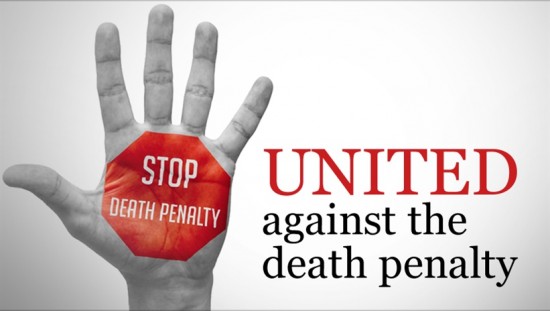On Thursday, four diverse Catholic publications – America, National Catholic Reporter, National Catholic Register, and Our Sunday Visitor – issued a joint editorial statement calling for abolition of the death penalty. This is an important period in the history of the death penalty in America: the movement for abolition has been successful in a number of states, and a number of others appear to be shifting. But just as important, such a statement by diverse Catholic publications exemplifies a desire to put principle above politics, put Catholicism above partisan divides, in the service of human dignity and the common good.
Our blog is not a publication in their sense – we don’t have a formal editorial board, or take stances. However, from the beginning of this blog in 2011, we have aimed to represent a broad spectrum of voices within Catholic moral theology today. We have not drawn primarily from one graduate program or one ideological focus. We have sought to have a discussion where differences within Catholicism could be discussed and explored intelligently and with integrity.
In short, we haven’t sought to have all our bloggers “agree” on things. But now is a time to do so. It should be clear now that, regardless of partisan affiliation, continued use of capital punishment in the United States is unjustified by any reading of current Catholic teaching. It is a dangerous practice that encourages a belief that human life is at our disposal. Many have also pointed out the practical problems with the current system of capital punishment. But perhaps most importantly, support for capital punishment is inconsistent with the central symbol and event of Catholic faith. We are pleased to add our collective voice to this call to abolition.
David Cloutier, Mount St. Mary’s University
Jana Bennett, University of Dayton
Charles Camosy, Fordham University
Dana Dillon, Providence College
Kari-Shane Davis Zimmerman, College of St. Benedict
Kathryn Getek Soltis, Villanova University
Jason King, St. Vincent College
Christopher Vogt, St. John’s University (NY)
Meghan Clark, St. John’s University (NY)
John Berkman, Regis College/University of Toronto
Beth Haile, independent scholar
Nichole Flores, St. Anselm College
Emily Reimer-Barry, University of San Diego
Andrew Kim, Walsh University
Matthew Shadle, Marymount University
Julie Hanlon Rubio, Saint Louis University
Patrick Clark, University of Scranton
Tom Bushlack, University of St. Thomas
Ramon Luzarraga, Benedictine University
Jessica Wrobleski, Wheeling Jesuit University




“support for capital punishment is inconsistent with the central symbol and event of Catholic faith.”
I accept that there may be valid reasons to oppose capital punishment, but surely this is not one of them. It is undeniable that the church has from the beginning acknowledged the right of states to apply the death penalty for certain crimes. How do you assert that a doctrine taught for nearly 2000 years is suddenly inconsistent with the “central symbol and event of Catholic faith”? Whatever else may be said of capital punishment, this assertion cannot be true.
It was easy to rebut all the points from these four publications.
Here, from a Catholic theologian:
Four Catholic Journals Indulge in (anti death penalty) Doctrinal Solipsism, Steven Long, THOMISTICA, March 5, 2015
http://thomistica.net/commentary/2015/3/5/mutationist-views-of-doctrinal-development-and-the-death-penalty
Here, from me, a secular death penalty expert:
Rebuttal of Four Catholic Publications Call For End to Capital Punishment
http://prodpinnc.blogspot.com/2015/03/rebuttal-catholics-call-for-end-to.html
Intro
One of the major problems with the Church’s newest teachings on the death penalty is that neither the Bishops, nor any other Catholics, opposed to the death penalty, appears to fact check anything the anti death penalty movement produces, resulting in error after error presented to the flock, undermining the truth. You must fact check and consider opposing facts (1) to find the truth. As a rule, on this topic, the Church will not do that.
The Bishops have accepted anti death penalty claims, as gospel (small “g”), even when they conflict with Church teachings, as described.